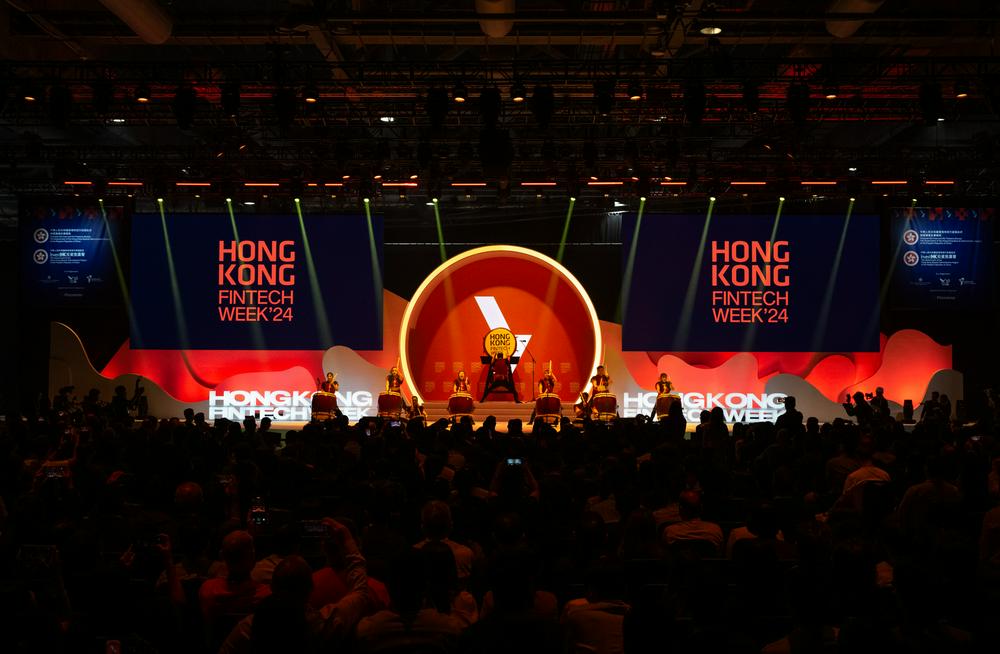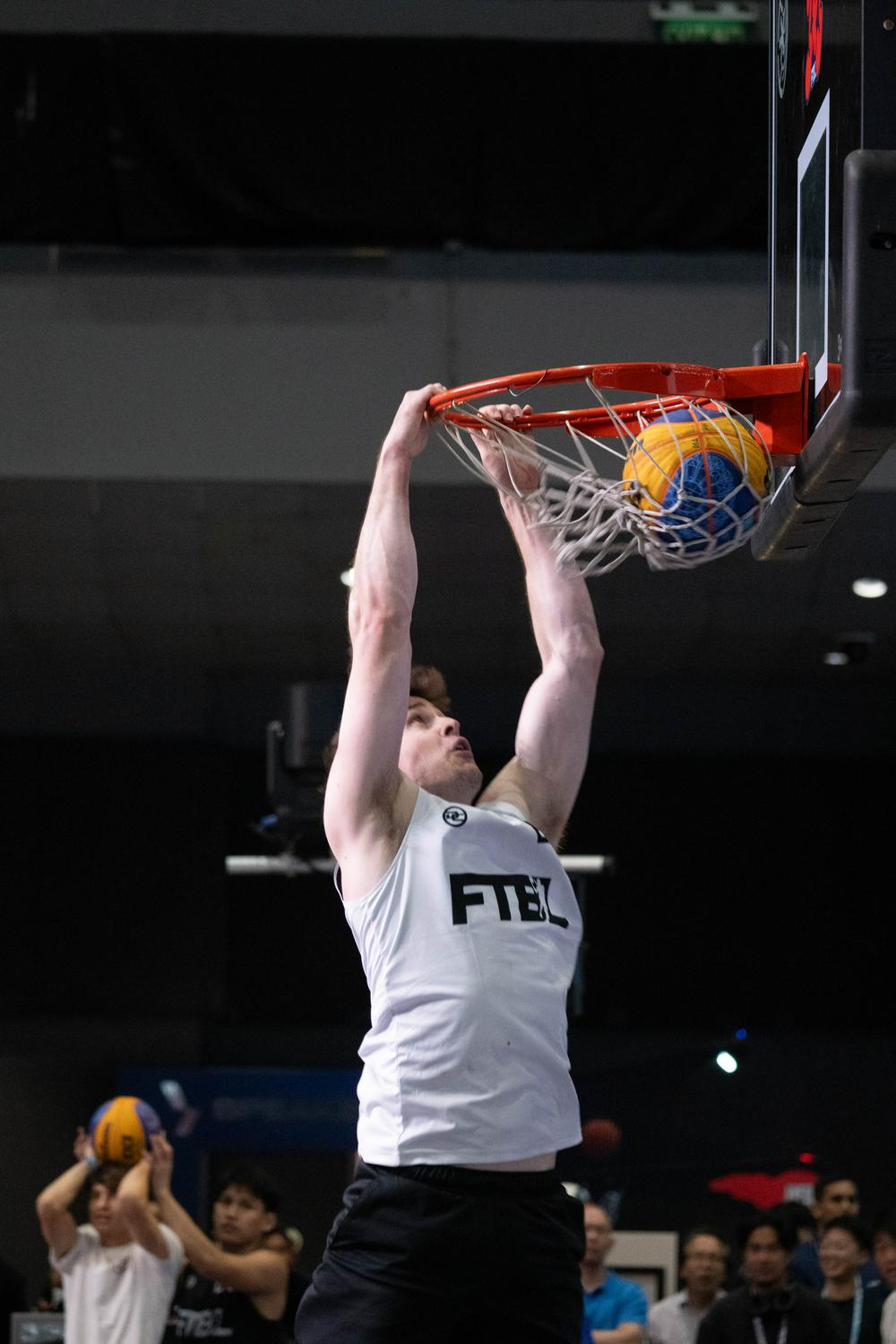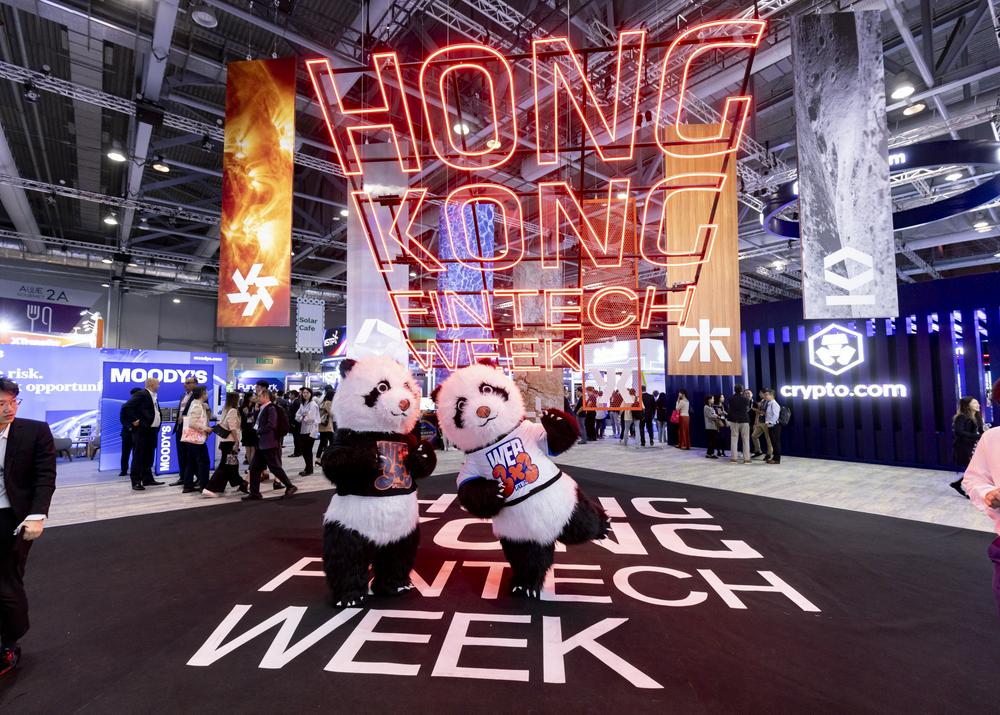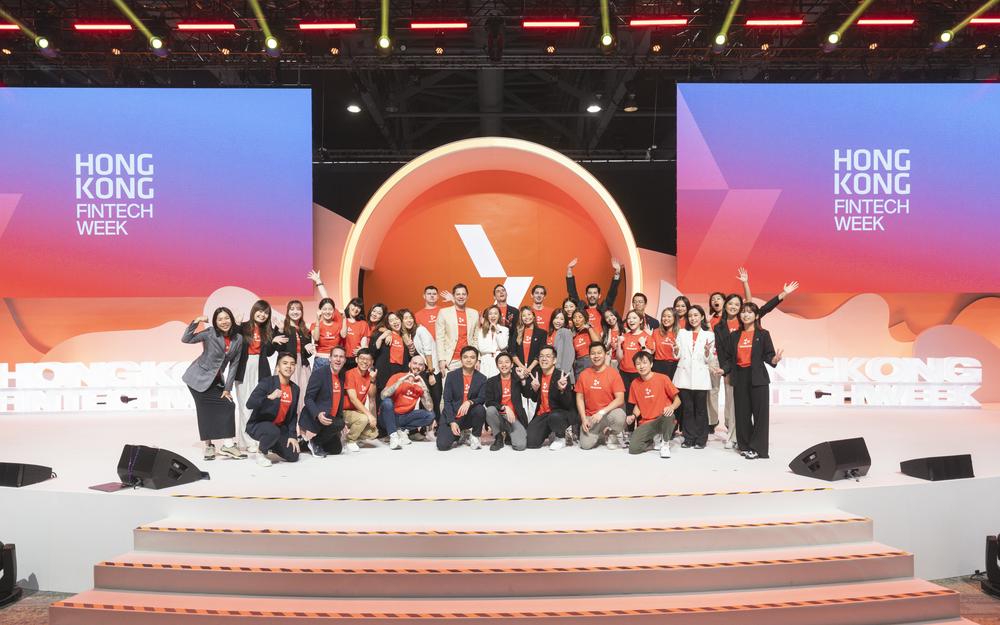Interview: Yolanda
Written by: Frank
Hong Kong, as an international financial center, has always been a stage for various financial innovations to converge and collide. The Hong Kong FinTech Week is one of the most representative events, having become an important link for communication and cooperation in the financial technology industry. It not only brings together regulators from mainland China, Hong Kong, and around the world but also gathers different roles such as fintech founders, crypto entrepreneurs, venture capitalists, and traditional financial executives, breaking down industry boundaries.
On November 1, the ninth Hong Kong FinTech Week concluded. During this year's event, tech giants like Ant Group, Tencent, and Xiaomi, along with many traditional financial institutions, announced new developments in their Web3 tracks, facilitating exchanges among Web3 practitioners from around the globe. The Hong Kong FinTech Week has also become one of the most important events for the integration and exchange of Hong Kong's fintech and Web3.
From its inception in 2015 to becoming one of the largest fintech events globally, the Hong Kong FinTech Week has continuously expanded under the organization of the Hong Kong Invest Hong Kong and the Financial Services and the Treasury Bureau, along with the meticulous management of Finoverse. Recently, PANews interviewed Anthony Sar, co-founder and CEO of Finoverse, to share stories behind this grand event and insights on the integration of the Web3 industry with traditional finance. Below is a summary of the main content from this interview.

PANews: Finoverse has been operating since the first Hong Kong FinTech Week. Could you please introduce Finoverse and your background? What drives you to continue hosting this grand event?
Anthony Sar: Initially, in 2015, I and another founder, Vila Wong, met a group of fintech professionals and blockchain enthusiasts and decided to bring them together by hosting events, thus founding Finoverse. This initiative was not originally for commercial purposes but happened naturally. In 2016, the government began to notice our work and invited us to co-host their flagship event—the Hong Kong FinTech Week. We started working closely with the government, Invest Hong Kong, the Financial Services and the Treasury Bureau, and regulatory bodies. We developed this event from an initial scale of around 2,500 people to one of the largest fintech events globally, with over 37,000 participants this year.
Finoverse believes that the financial services industry should provide more choices for people, clients, and society, rather than being limited to a few large players. Therefore, we maintain a neutral stance on different technologies, whether it's artificial intelligence, fintech companies, or blockchain and cryptocurrencies, as long as they can serve clients faster, cheaper, and better, we support them.
In the process of development, you can see a very unique aspect showcased at the Hong Kong FinTech Week, where regulators from mainland China, Hong Kong, and around the world, as well as fintech founders, crypto entrepreneurs, venture capitalists, and traditional financial executives share the same stage. This is the only platform in the world that brings together people with very different views on the future of the industry.
We hope and believe that the dialogues created on this platform will help all these participants better understand each other, learn from one another, and collaborate efficiently in the future.
PANews: What unique features does this year's Hong Kong FinTech Week have? How does it differ in scale and content from previous years?
Anthony Sar: This year, we have made quite a few changes. Since this event has been held for nearly a decade, the times have brought many changes. Therefore, this year, we focused more on providing participants with different experiences. We drew inspiration from the five elements and yin-yang, and you may have noticed that we used these elements to allocate different areas and themes. The main stage represents the sun, and we hope to convey that this is the sunrise and rebirth of Hong Kong.
Especially in the Web3 aspect, we also innovated this year, bringing some things that may not be seen at other conferences. We built a basketball court at the venue and invited fintech and Web3 individuals to participate in a 3V3 match.
Additionally, we collaborated with a Hong Kong charity organization called InspiringHK Sports Foundation, which provides training programs for underprivileged children in Hong Kong through basketball, and we donated all the proceeds to them. I hope the event is no longer just a drinking party but can connect people through different experiences, promoting health and sports.

PANews: Looking back at the past few years of the Hong Kong FinTech Week, which edition impressed you the most? Can you share some unforgettable experiences or stories?
Anthony Sar: I think the FinTech Week has evolved with the development of the industry over the years. For me, the most memorable might be when all events were shut down during the COVID-19 pandemic. We then transitioned to a fully virtual format, and that edition of the Hong Kong FinTech Week turned out to be one of the most successful ones we hosted.
During the pandemic, we did not choose a simple online meeting solution but truly rebuilt an online virtual experience. At the same time, we collaborated with some major media outlets in China, which ultimately led to that edition of the Hong Kong FinTech Week receiving significant exposure, with total viewership exceeding 5.5 million.
PANews: What significant changes have you noticed this year in terms of participants and the main topics of crypto activities?
Anthony Sar: This year, it is evident that we see an increasing proportion of participants and companies from mainland China. For example, this is the first time we have Ant Group and Tencent as major sponsors. Many of the dialogues we observed focused on RWA (Real World Assets). RWA even became one of the mainstream topics of this year's event, although some discussions may differ from the cryptocurrency field, it is also a major topic of overlap between traditional institutions and the crypto industry.
Another dialogue theme this year might revolve around stablecoins, as Hong Kong regulators are planning to introduce policies related to stablecoins, which is another major focus of this event. Of course, there is also AI, which is a hot topic globally.
Overall, I feel that the entire conference, especially in the crypto aspect, shows a trend where the Web3 industry is starting to collaborate more with institutions. On the other hand, crypto assets are increasingly being viewed as an asset class, with more traditional players entering this field.
PANews: How do you view the current trends in the event industry, especially in the fintech and Web3 sectors?
Anthony Sar: In the past few years, there have been two directional changes. On one hand, it has become easier for people to access content online; you can find any content on the internet. Therefore, we can see that people are less inclined to spend time in conference halls, especially the younger generation. In the future, we will see fewer people sitting and listening to lectures, and more time spent on different activities and networking.
But on the other hand, people prefer to spend more time together in person. Look at how popular Taylor Swift's concerts are globally; people enjoy experiences and like to gather together to spend time. These changes will affect how events are organized. I believe that crypto is one of the first industries to adopt this trend, creating experiences. Content is still important, but to attract an audience through content, you need something more unique, something that is hard to find online.
PANews: So you will start creating more experiences to attract more young people, right?
Anthony Sar: Essentially, yes. In previous events we hosted, many people met their partners at our events. For example, there is a couple of hosts who both work in the cryptocurrency field. They met at our second event in Hong Kong, and now they have a daughter. This is essentially the value of why people come together and get to know each other.

PANews: Besides the Hong Kong FinTech Week, how else does Finoverse participate in and promote the fintech and Web3 ecosystem?
Anthony Sar: The FinTech Week is basically our most well-known flagship event, but we also collaborate with various parties on different initiatives. Last year, we actually organized an event in the Bahamas in collaboration with the Bahamas Securities Commission, which commissioned us to help bring the Web3 and cryptocurrency community back to the Bahamas after the FTX incident. They are working hard to establish a new image for the Bahamas.
In addition to these, we have also held events in the Middle East, such as Dubai and Abu Dhabi. We brought Web3 founders to meet all key stakeholders and regulators in Dubai, Abu Dhabi, and Riyadh, Saudi Arabia. We hope to connect the Hong Kong community with those in North America, the Middle East, and mainland China in this way. This is our next growth target. We hope to collaborate with different communities to connect them together.
PANews: The crypto industry is becoming increasingly popular. Will Finoverse lean more towards Web3 in the future?
Anthony Sar: In fact, in the beginning, our focus was on blockchain. Very early on, Vitalik was one of our main speakers. Later, I also worked with him in Malaysia on some early blockchain education initiatives. However, with the ICO boom starting in 2017, I began to distance myself from the cryptocurrency industry. To some extent, I feel that many things happening in this industry lead to more speculative behavior.
Even now, when we evaluate what kind of speakers should be on stage, what kind of content, or what kind of participants we want to see at events, we often ask ourselves one question: how can this project or company contribute to the ultimate goal of making financial services accessible to people? If it is just about making a few people richer, that doesn't make sense to us. This is a very simple statement, but it essentially reflects our vision.
When it comes to organizing cryptocurrency events, we consider whether these events can actually create impact and whether the driving force behind the organizers ultimately creates opportunities for people. We typically do not cater to the demand for just issuing another token or similar projects; we are not interested in that. So essentially, our focus remains on more substantive things that can make a difference and have an impact.
PANews: You have interacted with many Web3 entrepreneurs. What characteristics do you think are very important for Web3 entrepreneurs?
Anthony Sar: Those with a long-term vision have an intrinsic drive that motivates them to push for change in the world. It's not just because they want to make a lot of money, but because they want to make an impact in their lives through what they are building. I truly admire these individuals; they are driven by this motivation and are genuinely creating something new.
Building things in cryptocurrency and Web3 requires a lot of perseverance if you really want to make a change, rather than just creating something simple and short-lived. Basically, everyone is against you. Every aspect of this industry is very complex. There are technical layers, macroeconomics, regulations, and competition. You also have all the potential risks associated with cryptocurrencies. So, it’s difficult to stay on the right path.
People like Vitalik can be a great example; he builds for long-term future impact, not just to create another token. There are quite a few people in this industry like that. I admire them greatly. I believe that ultimately we will see them become more successful.
PANews: What advice do you have for emerging enterprises or individuals looking to enter the Web3 industry?
Anthony Sar: If you want to build something valuable, be prepared for it to be very difficult and complex. You need to have long-term endurance and perseverance. While this is true in every industry, it is especially so in cryptocurrency and Web3, where maintaining and building something in such a dynamic industry is much more challenging.
However, if someone just wants to make a little money or make quick profits, that could also be a good opportunity. But I believe that even if you succeed in something, it doesn’t mean you will succeed next time. Usually, it’s just a matter of luck. So, how to achieve this in the long term and how to consistently get results time and again requires more than just luck. This is the quality people should focus on.
PANews: Is the event for next year already in preparation?
Anthony Sar: Next year will mark the tenth anniversary of the FinTech Week, and I believe it will be very special. We are innovating more content, and I think it will surprise everyone. We are preparing some very, very impactful things, so stay tuned for the tenth anniversary of the Hong Kong FinTech Week.

免责声明:本文章仅代表作者个人观点,不代表本平台的立场和观点。本文章仅供信息分享,不构成对任何人的任何投资建议。用户与作者之间的任何争议,与本平台无关。如网页中刊载的文章或图片涉及侵权,请提供相关的权利证明和身份证明发送邮件到support@aicoin.com,本平台相关工作人员将会进行核查。



